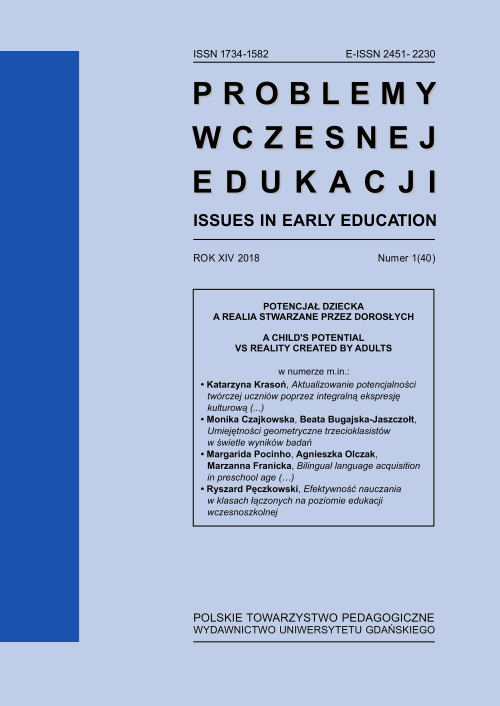New media in the education of children with and without disabilities from the perspective of the knowledge and actions of their parents
DOI:
https://doi.org/10.26881/pwe.2018.40.08Słowa kluczowe:
new technologies, disabled child, education process, virtual reality, risky behavioursAbstrakt
The aim of the text is to draw attention to the need to undertake planned and targeted preventive actions in the family environment as well as to domesticate effectively the so-called new technologies that are already present in our social reality, in the process of the education of pupils, with special attention paid to children with disability degree certificates. The article also presents the results of a study conducted on parents of children aged 7–12. The respondents were divided into two groups, parents of children with special educational needs due to various mental disorders, and parents of those with no such certificate. The two groups of interlocutors differed in terms of the extent to which they perceived Internet threats. A larger picture of this phenomenon emerges from the narrative of adults raising children with disability degree certificates, which points to the need to equalize opportunities and to keep pace with able peers, but creates many difficulties, including the already difficult process of educating children with developmental disorders.

 Uniwersyteckie Czasopisma Naukowe
Uniwersyteckie Czasopisma Naukowe





